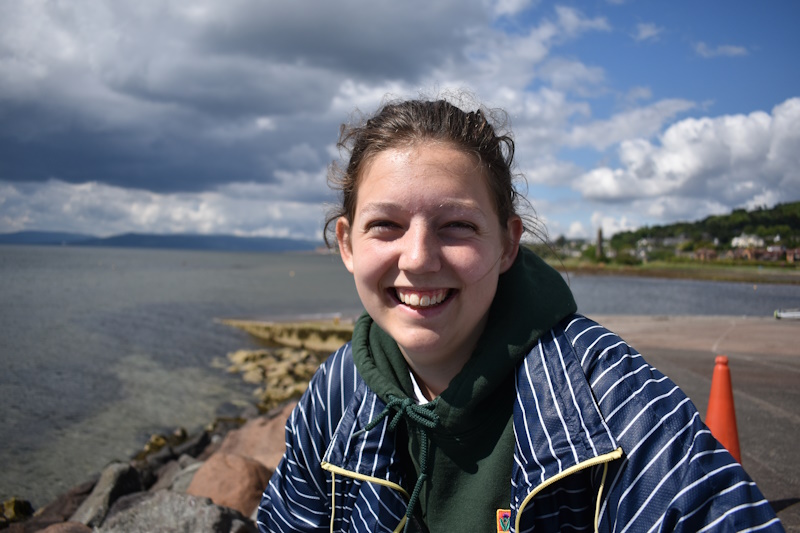Gracie McGill has just commenced her PhD in galactic archaeology and has been awarded a Bell Burnell Graduate Scholarship. In this post she shares her passion for physics and reflects on the importance of diversity in the field.
Tell us about your work
My research involves trying to uncover how galaxies form and evolve.
Galaxies grow by merging with and swallowing smaller dwarf galaxies and it is particularly interesting to study the very faint, extended outer regions of a galaxy, known as a stellar halo, as this region is expected to contain a gold mine of information about past mergers.
I’ll be working with observations from the new Euclid telescope to map stars in the outer regions of galaxies in the nearby universe in order to build up an archaeological record.
What drew you to this area of physics?
I’ve always wanted to try and understand how things work and why they are a certain way. My parents always encouraged my curiosity and when I was 16, my dad took me to the New Scientist Live event in London and this really sparked my interest in astrophysics in particular.
I was drawn to galactic archaeology specifically, through my master’s project which involved analysing star clusters in the stellar halo of our neighbouring Andromeda galaxy.
You are a Bell Burnell Graduate Scholarship Fund Awardee 2024. What does winning the scholarship mean to you?
Winning the scholarship has made it a reality for me to work in what I feel is one of the most exciting areas of research.
The Bell Burnell Graduate Scholarship is an amazing fund that’s making an important difference in promoting inclusivity and equality in physics.
I’ve had my doubts about whether I’m really cut out to pursue a career in physics and as well as allowing me to do that, having been selected also feels like proof that I am good enough and that maybe I can do this.
What challenges have you faced to get to this point?
Like a lot of women in physics, I think some of my biggest struggles have been due to my self-doubt and struggles with impostor syndrome. Though there has been a lot of progress towards equality and inclusion, there’s still a pervading attitude that women – as well as others who don’t fit society’s narrow view of what it means to be a physicist – are not suited to research careers. Even though that’s nonsense, if you’re someone like me, who is already prone to doubting yourself, it can be hard to ignore those voices telling you that you can’t do it.
I’ve struggled with mental health issues for quite a long time now and these were particularly exacerbated as a result of the Covid-19 pandemic. As a result of the lockdown, I spent the majority of the first two years of my undergraduate degree isolated and this had a really big impact on my self-confidence. Without the community of other students who shared my passion and my struggles, it became very difficult not to give in to self-doubt and the belief that I wasn’t cut out for this.
What would you say to those who have also faced barriers to following their dreams to pursue physics at university and beyond?
I would say don’t doubt yourself, but I know how hard that can be, so instead I will say don’t let your self-doubt get the better of you. Try despite your doubts, because you are almost certainly more capable than you believe.
But probably the most important piece of advice I could ever give is that if you’re struggling, you are not alone and there are always people who want to help you and see you succeed – so don’t be afraid to rely on the support of those around you.
Why do you think diversity in physics is so important?
It’s really important to have diversity in any field because it leads to more diverse ways of thinking and that is absolutely crucial.
I also think it’s very important to improve diversity in physics so we can move away from this idea that to be a physicist you have to be one very specific type of person and develop a more inclusive community, so that people who don’t fit that image can become physicists without having to worry about whether or not they’ll be accepted.
Further information
The Bell Burnell Graduate Scholarship Fund is now open for applications, with a closing date of 20 January 2025: Bell Burnell Graduate Scholarship Fund
You can read Gracie’s full interview on this site.
Further PhD scholarship information can be found on the School of Physics and Astronomy webpage: PhD opportunities at the School of Physics and Astronomy



